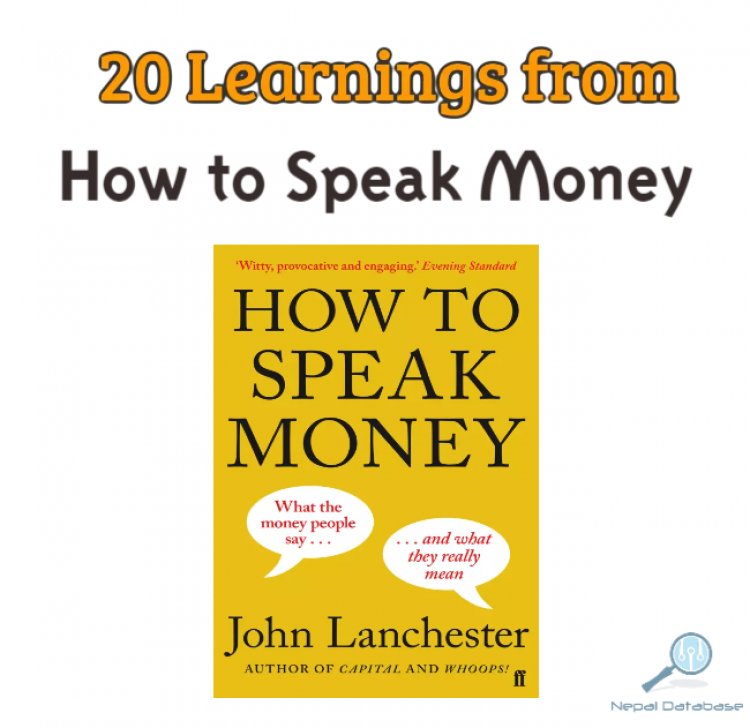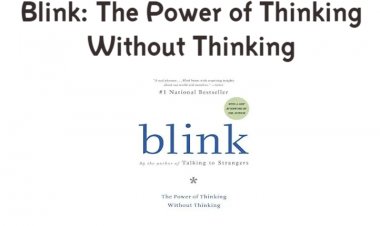20 Important Learnings from "How to Speak Money" by John Lanchester
Learn 20 key takeaways from "How to Speak Money" by John Lanchester, a guide to understanding finance. This article provides a concise overview of important concepts like interest rates, derivatives, and consumer protection.

"How to Speak Money" is a comprehensive guide to understanding the world of finance. In the book, John Lanchester breaks down the complex terminology and concepts used by bankers, economists, and financial analysts to help readers gain a deeper understanding of the financial system. From the basics of interest rates and inflation to more complex financial instruments like derivatives and hedge funds, the book covers a wide range of topics related to finance. By understanding the language and complexities of finance, readers can make more informed decisions about their finances and be better equipped to navigate the financial system. In this article, we will discuss 20 important learnings from "How to Speak Money" in small points and explain each point to provide readers with a comprehensive overview of the key takeaways from the book.
-
Financialization has led to a widening gap between the rich and the poor.
Lanchester argues that the increasing use of financial instruments has led to a shift in wealth from the middle and lower classes to the wealthy.
-
Understanding the language of finance is crucial to making informed decisions.
Lanchester emphasizes the importance of learning the jargon used by bankers, economists, and financial analysts.
-
Interest rates play a crucial role in the economy.
Changes in interest rates can have a significant impact on investments, borrowing, and economic growth.
-
Inflation is a hidden tax on our money.
Understanding how inflation works can help you protect your money from losing its value over time.
-
Exchange rates can be volatile and unpredictable.
Changes in exchange rates can have a significant impact on international trade, investments, and economic growth.
-
Hedge funds are high-risk, high-reward investments.
Lanchester explains how hedge funds work and how they can be used to make significant profits but also involve significant risks.
-
Derivatives are complex financial instruments that can be difficult to understand.
Lanchester breaks down the various types of derivatives and explains how they work.
-
Credit default swaps played a role in the 2008 financial crisis.
Lanchester uses this example to explain how financial instruments can be used to manipulate the markets and deceive investors.
-
Financial institutions have a responsibility to promote sustainable development.
Lanchester discusses the relationship between finance and the environment, highlighting the ways in which financial institutions can promote sustainable development.
-
The global financial system is complex and interconnected.
Lanchester explains how a crisis in one part of the world can have significant consequences for the rest of the global financial system.
-
Central banks play a crucial role in the economy.
Lanchester discusses the role of central banks in setting interest rates and controlling the money supply.
-
The stock market is not always an accurate reflection of the economy.
Lanchester discusses how the stock market can be influenced by a range of factors beyond the real economy.
-
Insider trading is illegal and unethical.
Lanchester explains how insider trading works and why it is considered illegal and unethical.
-
Debt can be both beneficial and dangerous.
Lanchester discusses the benefits and risks of borrowing money and using debt as a financial tool.
-
The housing market can be volatile and unpredictable.
Lanchester explains how the housing market works and how it can be influenced by a range of factors.
-
Diversification is an important strategy for managing risk.
Lanchester discusses the importance of diversifying your investments to reduce the risks of losses.
-
Behavioral economics can help us understand why we make certain financial decisions.
Lanchester introduces the concept of behavioral economics and how it can help us make better financial decisions.
-
The financial industry is not always transparent or trustworthy.
Lanchester highlights the ways in which financial institutions can use complex financial instruments and jargon to deceive investors.
-
Government regulation is essential in regulating the financial industry.
Lanchester discusses the importance of government regulation in protecting consumers and preventing financial crises.
-
Financial literacy is crucial for making informed financial decisions.
Lanchester stresses the importance of financial education for individuals to understand the complexities of the financial system and make informed decisions about their own finances.
In conclusion, "How to Speak Money" is an essential read for anyone looking to gain a deeper understanding of the financial system. The book provides a comprehensive overview of the world of finance, from the basics of interest rates and inflation to more complex financial instruments like derivatives and hedge funds. By understanding the language and complexities of finance, readers can make more informed decisions about their finances and be better equipped to navigate the financial system. The book also highlights the importance of financial literacy and government regulation in protecting consumers and preventing financial crises. Overall, "How to Speak Money" is a valuable resource for anyone looking to improve their financial literacy and make more informed financial decisions.
What's Your Reaction?





































































































